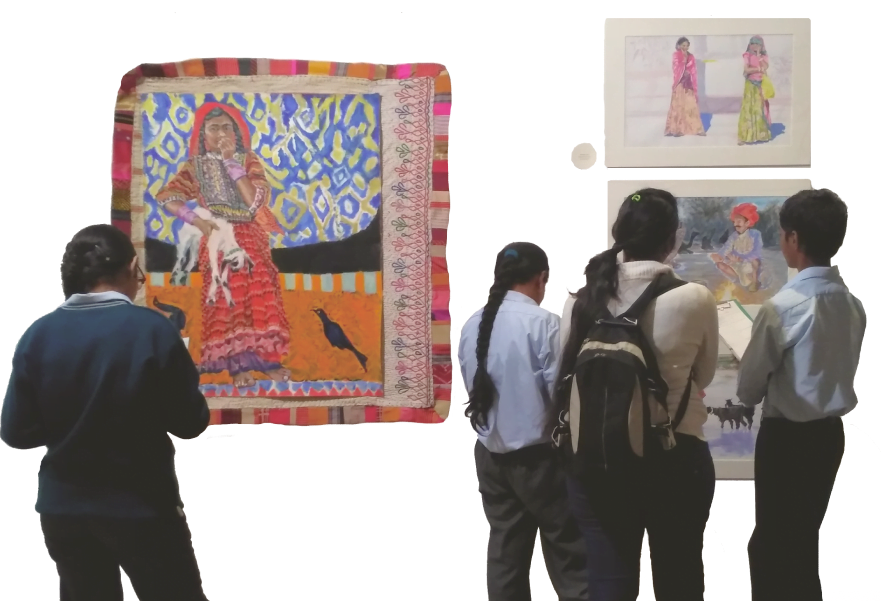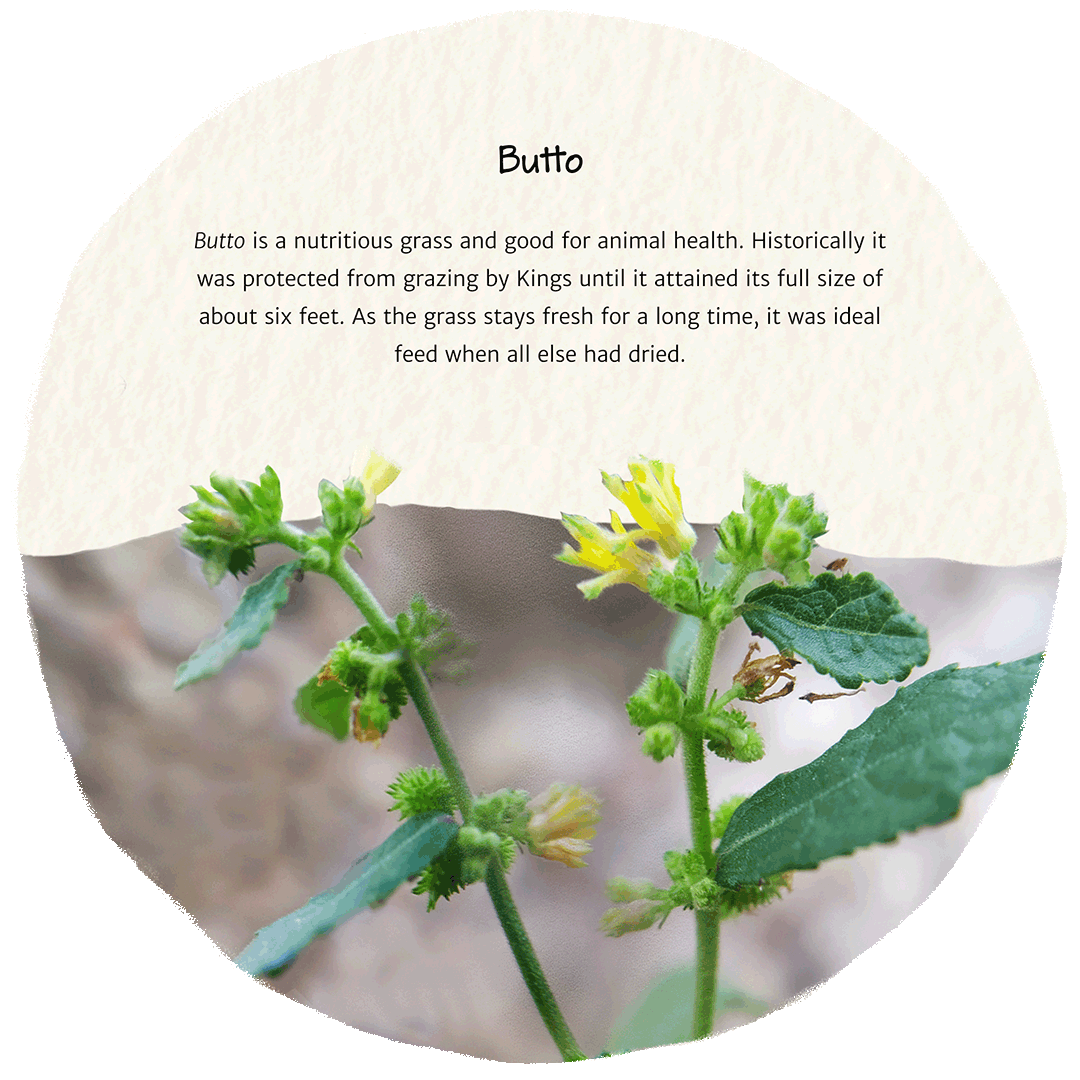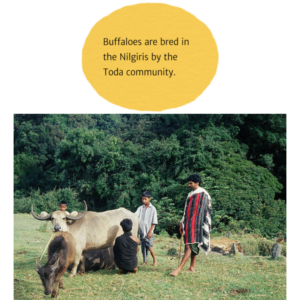Exhibitions & Events
Student Pastures
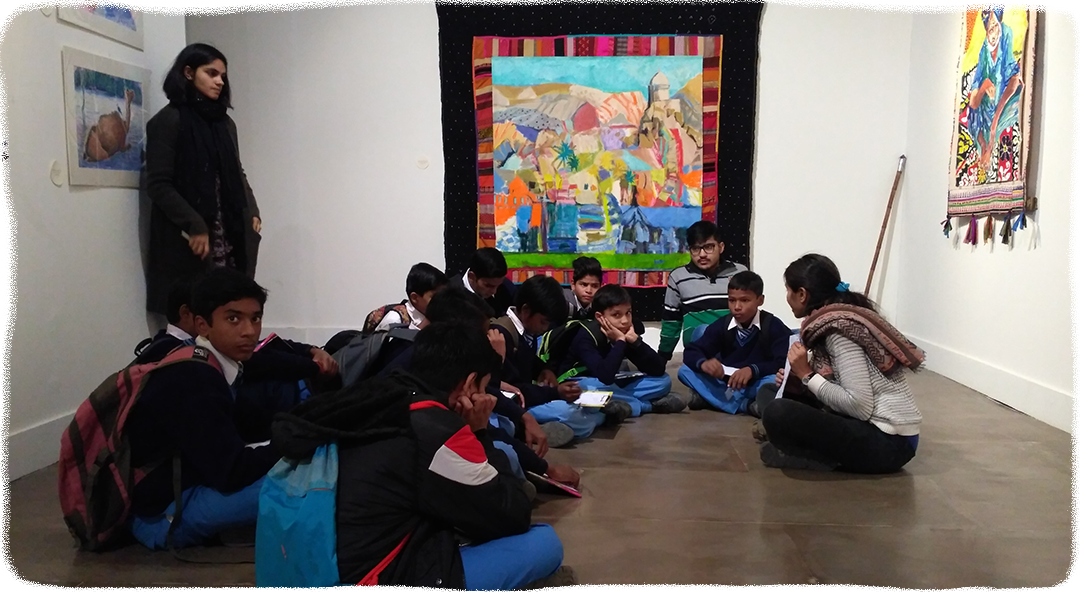
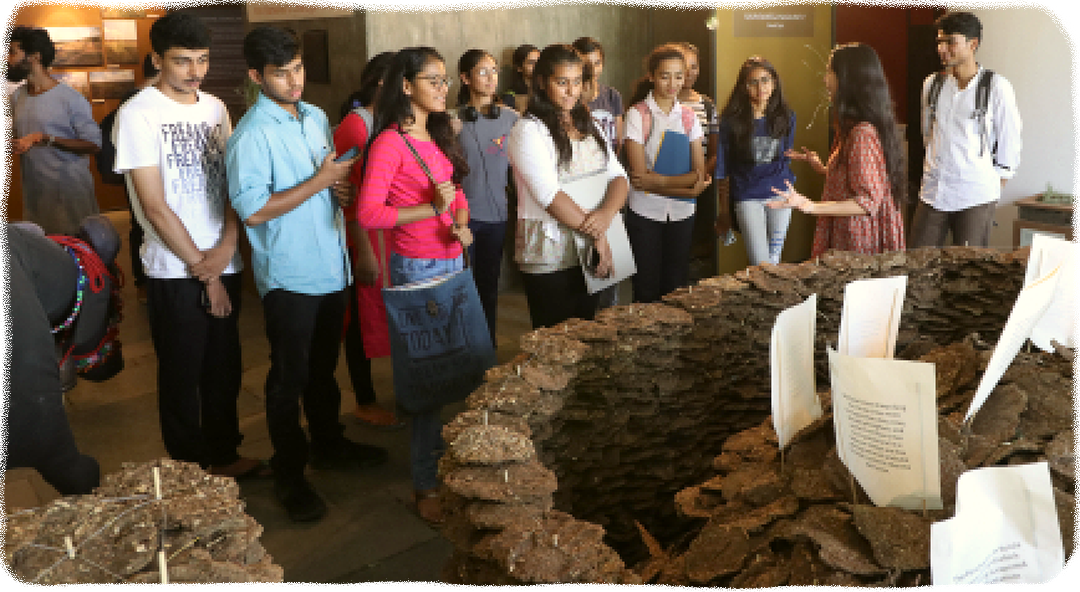
Student Roundtables, IGNCA Delhi 2016 >
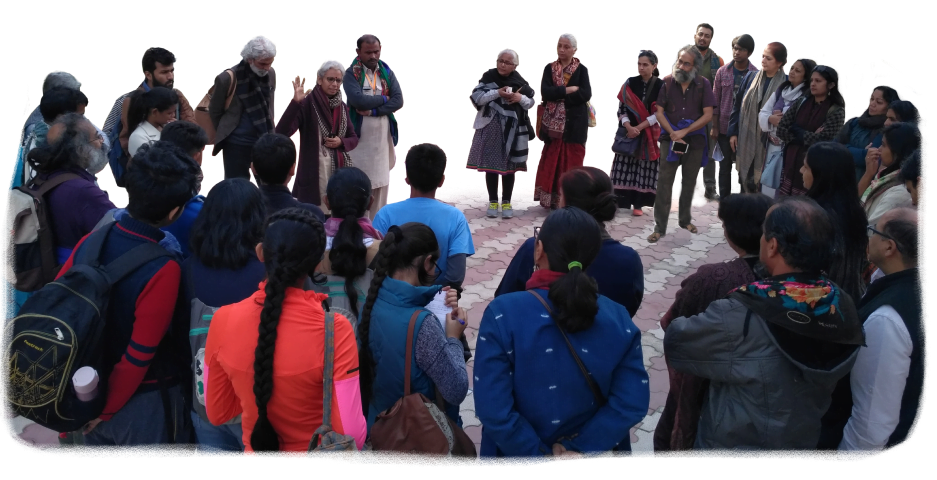
Mapping Movement, by Prof. Gauri Bharat, CEPT >
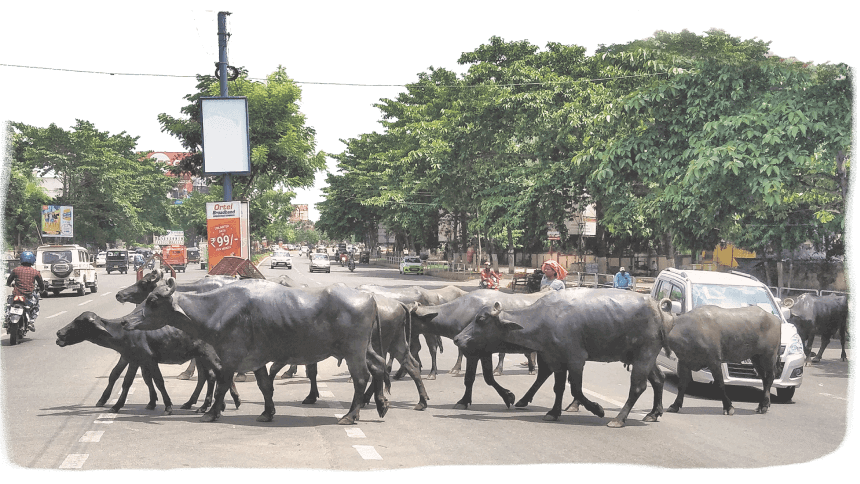
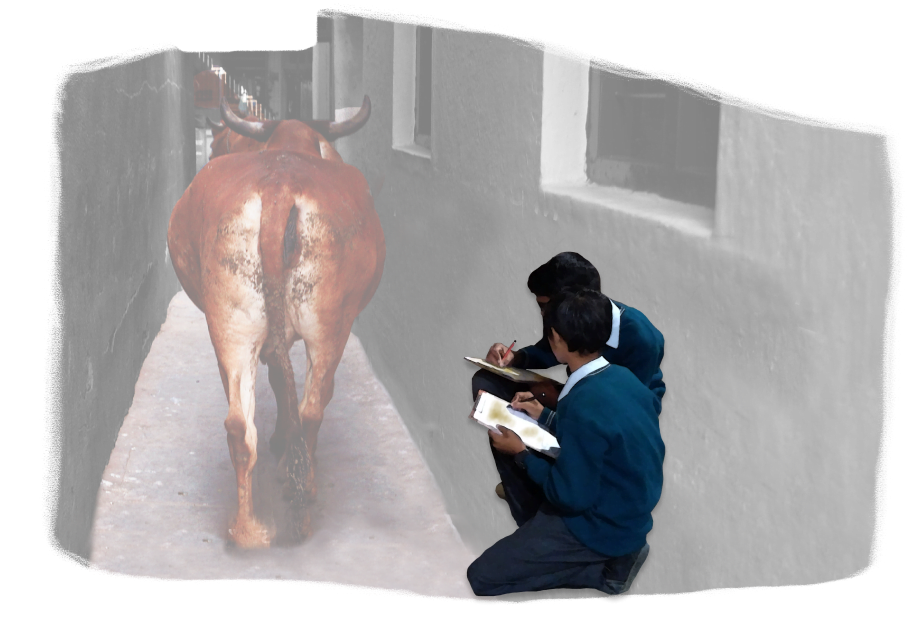
Material Making and Pastoralism, by NIFT and Khamir >
This round table, which saw 18 participants, sought to give young fashion designers a very rich and provocative exposure to material making, using the culture of pastorals in contemporary times. It enabled aspiring design professionals to discover both the varied raw material they receive from pastoral systems as well as the minimalist and no-waste designs emanating from pastoral cultures. The discussions encouraged young designers to challenge their own affinities, perspectives and choices in what gets called as the ‘craft sector’. More importantly, it led them to look at the influences of the environment and ecology on Maldhari life; and how this gets contextualized within the design process.
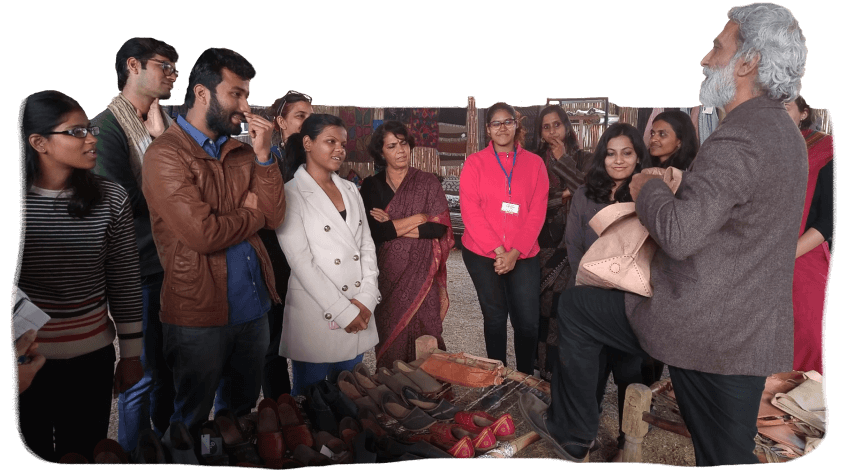
The round table was led by Mr. Jogi Panghaal, designer and educator, and Archana Shah, Designer and Founder of Bandhej. As two of the principle designers of the products on display in the craft bazaar organized by Khamir, they took the participant students and faculty of NIFT into a learning journey on the design process, values and approach they followed in putting together the sheep wool and natural leather collection for the exhibition. Many of the students were immediately inspired to work with the raw material emerging from pastoral livelihoods. And members of the NIFT faculty, participating in the round table, felt that they would like to to introduce a more holistic understanding of the design ecosystem within their curriculum.
Other Student Workshops
In Ahmedabad, Nupur Sinha, a visiting professor of Law at Nirma University, and the Director of Centre for Social Justice curated a series of lectures on pastoralism and law to coincide with the Living Lightly exhibition in Ahmedabad, Tushar Dash from Vasundhara, with extensive experience on FRA undertook sessions on the the legal underpinnings of FRA and its relevance to pastoralists.
School Workshops, IGNCA Delhi 2016 >
IGNCA was enlivened every morning for 10 days by the presence of school children from public and private schools of Delhi. Flow India, an organization that works extensively on design of educational material and methods for school students was invited to facilitate ten workshops to introduce school students and young adults (13-16 years) to the land, lives and livelihood of pastoralism. The form and content of the exhibition was designed to engage young students with the unique life relationships, eco-system and increasing relevance of pastoralism today, and in the future.
The on-site workshops and exposure to the practices and unique world views of pastoralists, provoked numerous questions and discussions on the pastoralists’ vision of coexistence amongst the youth, for whom climate change is a very palpable concern.
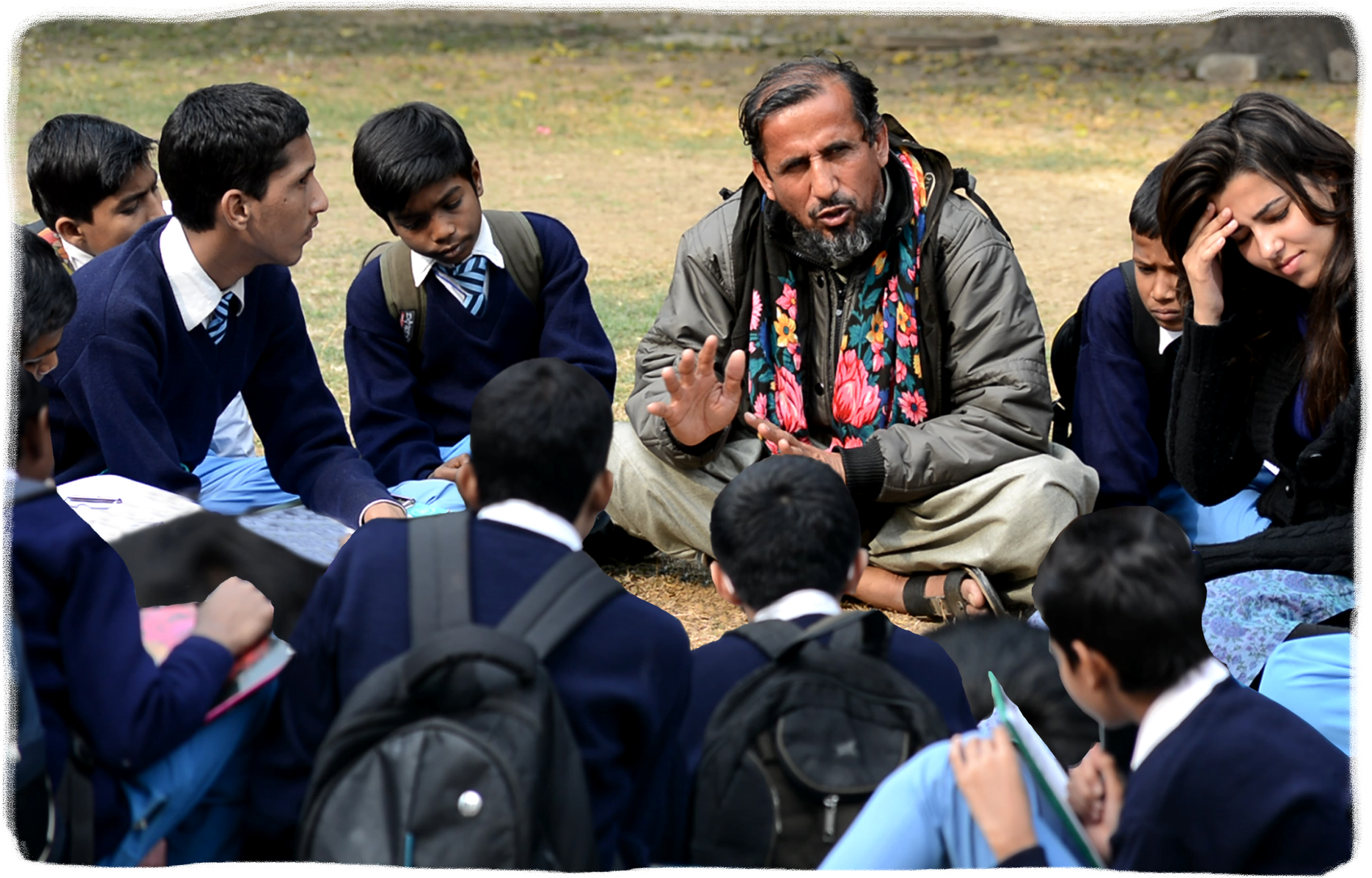
Vikas, a 12 year old boy from the MCD School , Mehrauli asked, “When these pastoralists keep moving from one place to another and don’t have access to banks and atms on their journey, then what is happening to them during demonetization?!”

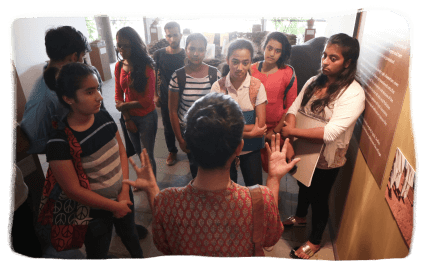
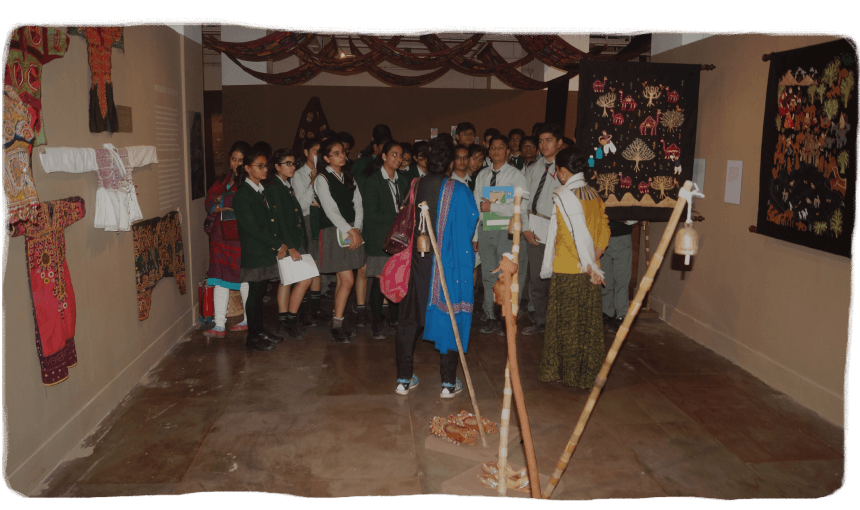
Flow India designed the workshops around themes and ideas of material needs, ecological conservation, economic production, arts, music, and crafts; students were encouraged to
draw upon the narratives in the exhibition to explore the concept of a ‘home’, movement
and mobility, as well as human response to eco systems. They were skilfully led by the facilitators to introspect on their own urban lives and its invisible but deeper connections to pastoral livelihoods. Researchers, practitioners, and pastoralists themselves collaborated with facilitators from Flow India to deliver the workshops. In all, about 250 students from schools run by private, government, and NGOs attended the workshops.
